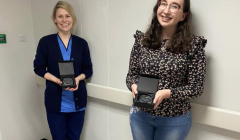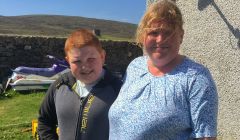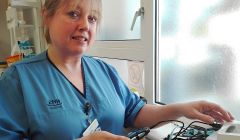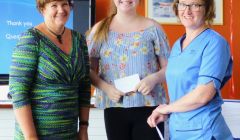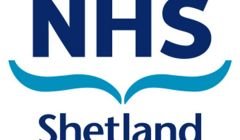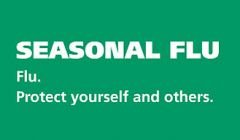Health / ‘Technology is the way forward’ – health board members hear from diabetes patients
ADVANCES in technology are greatly helping people with diabetes manage their condition, a meeting of the NHS Shetland board heard on Tuesday.
A big part of this is allowing people to use devices and mobile phone apps to keep track of their blood sugar levels.
Lead diabetes specialist nurse Alison Irvine said the condition costs NHS Scotland around £1 billion a year.
Diabetes is a serious condition where the blood glucose level is too high.
It can happen when the body does not produce enough of the hormone insulin, which allows the glucose in the blood to enter cells and fuel the body, or when you the person can’t produce any at all.
People with type one diabetes are unable to make any insulin at all, and type two means the insulin either cannot work effectively, or the person can’t produce enough of it.
Most folk with diabetes have type two, which for some people is able to go into remission.
Irvine said there are a number of associated problems connected to diabetes, including issues with eyesight, kidneys and strokes.
Irvine said technology was advancing at pace. “It’s really exciting because we can see the improvements it makes to people’s lives,” she said.
The meeting heard from John Taylor from Voe, who has had type two diabetes for about 40 years.
He said he was diagnosed around 38 years ago as part of an army medical, with his treatment shifting to insulin.
Taylor said his condition has improved since being under the watch of NHS Shetland’s Dr Pauline Wilson.
He has been able to access a weight loss programme, and has shed 20kg in the last year.
Taylor said while he wasn’t the most technologically advanced he was given Accu-Check equipment, which he said has helped him to manage his condition better.
Become a member of Shetland News
“As a patient I always regarded my care as being very good, but at the moment I would say it’s exemplary,” he said.
Taylor also said he has received “one stop shop” appointments from different departments together on the same day which means less travel.
The board then heard from Dr Wilson herself, who said her 17-year-old son had been diagnosed with type one diabetes in September.
She said as she sat in A&E with her son her clinical knowledge “went out the window” and she purely became a mother to her child whose “life had changed in front of me”.
Dr Wilson described it as a “really dark moment”.
She said “technology is so important” and made the case for investing in equipment in the aim of reducing costs of healthcare later down the line.
Dr Wilson said that 40 per cent of type one diabetes patients in Shetland have the Libre glucose monitoring system.
Board members also heard from Yvonne Reynolds, whose daughter was diagnosed with type one diabetes around a decade ago aged just seven.
“We were a bit shell shocked,” she said.
“We had to learn a whole wealth of information.”
Reynolds said her daughter was initially against the idea of using an insulin pump – a small electronic device that gives your body the regular insulin it needs throughout the day and night via a cannula.
However, after watching a video around a year into her diagnosis about how they can be used her daughter then decided to request one.
“It made a huge difference to our lives,” she said.
Reynolds said it allowed them to sleep better as before the pump they were setting alarms to go off three or four times during the night to check on their daughter.
She is now using an electronic glucose monitoring system, and her mum said the gadgets out there are “remarkable”.
“Technology is the way forward,” Reynolds said.
She also mentioned people growing frustrated with the restrictions for Covid-19, but living with and managing type one diabetes is “24/7” and for the rest of their lives.
Health board chair Gary Robinson welcomed the contributions from the patients.
“It’s really, really good to see the progress that’s been made locally on this,” he said.
Become a member of Shetland News
Shetland News is asking its readers to consider paying for membership to get additional perks:
- Removal of third-party ads;
- Bookmark posts to read later;
- Exclusive curated weekly newsletter;
- Hide membership messages;
- Comments open for discussion.
If you appreciate what we do and feel strongly about impartial local journalism, then please become a member of Shetland News by either making a single payment, or setting up a monthly, quarterly or yearly subscription.






































